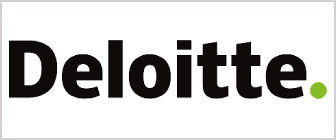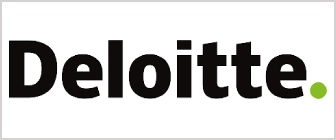Interview with Cecilia Margarita Montano Hernandez, Indirect Tax Leader partner for S-LATAM, Deloitte Mexico
1. What is the most significant change to your region/jurisdiction’s tax legislation or regulations in the past 12 months?
In Latin American countries, the approach from tax authorities to tax collection activities is more significant than recent changes in legislation. The authorities have focused on initiatives that strengthen their auditing capabilities and reduce the trade and tax facilitation benefits for businesses.
2. What has been the most significant impact of that change?
Tax authorities have undertaken more foreign trade audits with a higher level of complexity and aggressiveness, culminating in a higher level of tax collections. The increasing difficulty in obtaining authorizations, trade permits, and import or export licenses has impacted trade operations in Latin American countries.
3. How do you anticipate that change impacting your work and the market moving forwards?
The need for specialized advisory services to support businesses to navigate an over-regulated, uncertain, and disruptive environment has become more evident.
We are anticipating that, in order to keep track of the new challenges, involving technology behind our service delivery model has become a priority.
4. How has this changed the way you offer tax advice?
We have needed to broaden our tax advisory process to encompass additional ways to assist clients, such as initiating contact with tax authorities, and using technology tools to enhance our capability to meet clients’ needs. A coordinated strategy within our Spanish LATAM regional firm, with standardized services, enables us to offer the same high quality and centralized points of contact to improve the service experience.
5. What potential other legislative/regulatory changes are on the horizon that you think will have a big impact on your region/jurisdiction?
The nearshoring global trend has become a huge opportunity for the Latin American region, with the Inter-American Development Bank estimating in mid-2022 that nearshoring could represent more than US$78 billion worth of additional direct investments (across Latin America and the Caribbean) in the near and medium term. This trend of nearshoring to Latin America will drive competition within the region to capture as much of the related foreign investment as possible.
If Latin American countries want to compete more effectively for such foreign investment, it would make sense for them to introduce more incentives into the coming legislation as well as initiatives to foster trade facilitation, self-assessment, and internal control measures.
6. What are the potential outcomes that might occur if those changes are implemented?
More trade facilitation instruments will be implemented—such as the Trade Compliance Certification Mexico’s Ministry of Economy has recently announced it will begin providing via a pilot program—modeled on the trade compliance authorized economic operator (AEO) certifications issued in Europe, Canada, and the United States, under which customs authorities provide trade facilitation benefits for supply chain entities satisfying requirements in relation to their trade-related internal controls, customs compliance history, financial solvency, etc.
7. Do you think that change will have a positive effect on both your practice and the wider regional/jurisdictional market?
There could be different scenarios, driven by each Latin American country’s long-term strategy and vision. If the nearshoring momentum is not encouraged by any particular country, it will be another country’s gain.
Either scenario will create indirect tax practice opportunities within the region. If a country decides to maintain an over-regulated approach, additional professional services will be required. But if a country’s approach is one of trade facilitation, the new investment will require specialist guidance to maximize the indirect tax benefits, and businesses will need assistance to achieve a high standard of trade compliance.
8. Are there any regulatory/legislative changes you believe should be implemented in your region/jurisdiction?
Trade simplification, regulations based on risk analysis, and measures to attract foreign investment should be implemented in the LATAM region.
Some examples of trade simplification must urgently need could be the elimination or reduction of information required to request a permit, the clarification on the information required or the procedures to be followed, access to the authorities to request information, clarification or even adjustments to enable new investments to comply, among others.
The complexity level of certain procedures to grant authorizations in some Latin American countries creates fewer participants applying for the benefits, which represent a loss of competitiveness.
9. How do you believe those changes would help improve the tax landscape in your market?
Attracting direct foreign investment and mitigating the impacts of the currently disruptive environment on supply chain operators will bolster post-pandemic economic recovery.
On the other hand, promoting the implementation of procedures to mitigate potential risk, self-compliance, and internal controls, will create indirect but tangible benefits for trade in the region, so companies will then tend to have a preventive approach rather than a reactive one and the government will improve the tax collection efforts.
10. How are issues surrounding the taxation of the digital economy affecting your work?
Perhaps the lack of definitions around e-commerce still impacts day-to-day transactions, creating interpretation discrepancies and liabilities.
11. How would you describe the tax authorities’ approach in your region/jurisdiction?
The tax authorities’ approach is aggressive, with their main focus being on tax collection, by privileging form over substance, penalizing taxpayers even for human mistakes rather than concentrating only on tax omission penalties.
Also, administrative fines imposed by Latin American Countries for foreign trade infractions tend to be un proportional to the penalized behaviour, which represents a higher risk to manage for the Companies in the region.
This document has been prepared solely for the purpose of publishing in the 2023
ITR World Tax Guide and may not be used for any other purpose. This document
and its contents may not be reproduced, redistributed or passed on, directly or
indirectly, to any other person in whole or in part without Deloitte’s prior written consent.
Deloitte refers to one or more of Deloitte Touche Tohmatsu Limited
(“DTTL”), its global network of member firms, and their related
entities (collectively, the “Deloitte organization”). DTTL (also referred
to as “Deloitte Global”) and each of its member firms and related
entities are legally separate and independent entities, which cannot
obligate or bind each other in respect of third parties. DTTL and each
DTTL member firm and related entity is liable only for its own acts
and omissions, and not those of each other. DTTL does not provide
services to clients. Please see www.deloitte.com/about to learn more.
This communication contains general information only, and none of
Deloitte Touche Tohmatsu Limited (“DTTL”), its global network of
member firms or their related entities (collectively, the “Deloitte
organization”) is, by means of this communication, rendering
professional advice or services. Before making any decision or taking
any action that may affect your finances or your business, you should
consult a qualified professional adviser.
No representations, warranties or undertakings (express or implied)
are given as to the accuracy or completeness of the information in
this communication, and none of DTTL, its member firms, related
entities, employees or agents shall be liable or responsible for any
loss or damage whatsoever arising directly or indirectly in connection
with any person relying on this communication. DTTL and each of its
member firms, and their related entities, are legally separate and
independent entities.
© 2022. For information, contact Deloitte Global.


